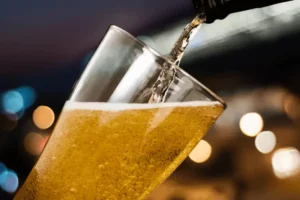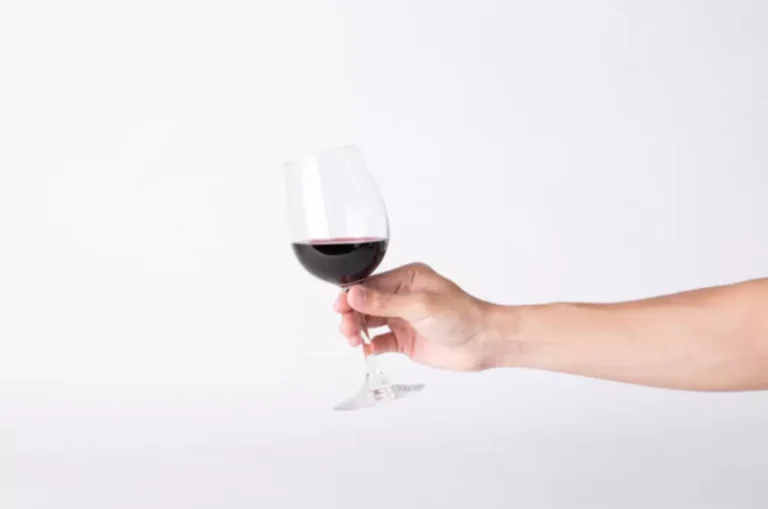
Having a history of seizures increases your risk for withdrawal seizures. We publish material that is researched, cited, edited and reviewed by licensed medical professionals. The information we provide is not intended to be a substitute for professional medical advice, diagnosis or treatment.

Between 12 and 24 Hours
It contains vitamin B1 (thiamine), B9 (folate), a multivitamin, electrolyte solution and more. One of the priorities in treating this condition is to lower nervous system activity. A healthcare provider will treat this using drugs that reduce how active your CNS is.
Find more top doctors on
- It is characterized by severe nausea, seizures and hallucinations.
- Talk to your doctor if you’re concerned about your drinking habits.
- Your detox should be medically supervised in order to help minimize severe symptoms.
- These happen in a very small number of people during withdrawal.
- Given its spectrum of manifestations from mild to severe and potentially fatal, all healthcare team members must recognize the signs and symptoms of this condition.
Alcohol has a slowing effect (also called a sedating effect or depressant effect) on the brain. In a heavy, long-term drinker, the brain is almost continually exposed to the depressant effect of alcohol. Over time, the brain adjusts its own chemistry to compensate for the effect of the alcohol. It does this by producing naturally stimulating chemicals (such as serotonin or norepinephrine, which is a relative of adrenaline) in larger quantities than normal. After this first week is over, you may experience some residual withdrawal symptoms, specifically those affecting mood, for up to a few weeks. Withdrawal is a natural part of recovering from alcohol use disorder.

Deterrence and Patient Education
- This figure increases to 91% for those who have remained abstinent and have attended AA for 5 years or more.
- They usually appear between one and three days after your last drink and are usually most intense four to five days after your last drink.
- A counselor can help someone prepare for life after withdrawal and provide support as they navigate quitting drinking.
- It’s important first to get evaluated by a medical professional and to reach out to a support system if you’re able.
- Receiving treatment for it can help reduce the odds of developing DTs in the future.
These symptoms usually begin 48 to 72 hours after you stop drinking and most commonly last 5 to 7 days. You may experience AWS between a few hours to a few days after your last drink or suddenly after reducing heavy alcohol use. If your home environment is not supportive for staying sober, talk with your doctor. Your doctor may be able to connect you with shelter programs for people recovering from alcohol addiction. A high fever, hallucinations, and heart disturbances are all reasons to seek immediate help. The symptoms may worsen over 2 to 3 days, and some milder symptoms may persist for weeks in some people.
- If you have the shakes, medical intervention is typically necessary, as shakes can be a sign of more serious withdrawal complications.
- If you’re otherwise healthy and can stop drinking and get treatment, the outlook is usually good.
- When someone drinks alcohol for a prolonged period of time and then stops, the body reacts to its absence.
- If you have withdrawal symptoms from drinking, then you have consumed enough alcohol to damage other organs.
- However, try not to have too many firm expectations, as symptoms can continue for multiple weeks in some people.
- Often, people are tempted to turn back to alcohol to ease the discomfort of withdrawal symptoms.
To learn more about when you may need help for alcohol misuse, visit our informational page on helping someone with an alcohol use disorder or take our alcohol misuse self-assessment. The symptoms of alcohol withdrawal can range from mild to serious. If you drink alcohol heavily for weeks, months, or years, Cure for Alcohol Withdrawal Symptoms you may have both mental and physical problems when you stop or seriously cut back on how much you drink. When someone drinks alcohol for a prolonged period of time and then stops, the body reacts to its absence. This is alcohol withdrawal, and it causes uncomfortable physical and emotional symptoms.
Alcohol Detox for Withdrawal
Alcohol has what doctors call a depressive effect on your system. It slows down brain function and changes the way your nerves send messages back and forth. If you don’t already have a supportive network, you can make new connections by joining social media communities dedicated to alcohol-free living. Symptom-triggered therapy with benzodiazepines remains the cornerstone of management.

Treating alcohol withdrawal
This creates a state of temporary confusion and leads to dangerous changes in the way your brain regulates your circulation and breathing. The body’s vital signs such as your heart rate or blood pressure can change dramatically or unpredictably, creating a risk of heart attack, https://ecosoberhouse.com/ stroke or death. Benzodiazepines are a class of sedative medications that can treat anxiety and control seizures. This is typically the drug class of choice for alcohol withdrawal, as long-acting benzodiazepines may reduce the chance of recurrent withdrawal symptoms or seizures.
Stage 2: 12 to 24 hours after last drink
